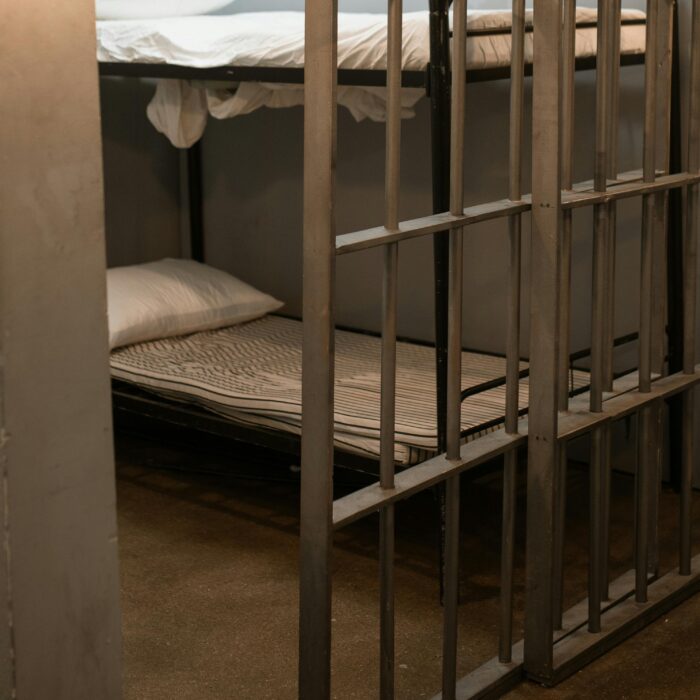You have no items in your cart. Want to get some nice things?
Go shopping
I was mom-years-old when I decided to get serious about writing. By then, the only space I could claim was in the corner of a half bathroom next to our garage, trying to channel the creative vibes of the tiny writing nook I once saw at Shakespeare and Company Bookstore in Paris, France. I finished my first Nanowrimo in that bathroom, pretending to be in an office instead of next to a toilet. But it didn’t last.
I felt like the Princess and the Pea, or maybe a little like Goldilocks and the Three Bears. The conditions had to be perfect or I couldn’t write. The ambiance had to be inspiring, and a bathroom wasn’t cutting it. It had to be quiet, but young kids don’t come with mute buttons. I thought the answer was a writing place without clutter, interruptions, distractions, with a dedicated desk and maybe a vanilla candle.
My lack of productivity in writing felt like a direct result of me not having a place of my own to work. I started to wonder if being a writer was a pipedream, something I either missed the boat for, or something I would have to wait to do when my nest was empty.
A few months after having my second child, we rented an RV and went glamping in the Sierras. I took breaks from the oppressive heat with the baby, retreating to the RV with the first writing book I had ever bought for myself. I propped her up in an infant seat and read a few pages at a time. When I gave birth to her, it occurred to me that I was in my 30s, a mother of two and still unpublished and full of excuses. I wanted to get serious about my writing. I wanted to outsmart my circumstances. It all began in that RV, in between campfires and diaper changes, at the cramped dining table that converted into a bed.
Parents know that the conditions are never perfect at home, no matter how hard we try to fight reality. It’s never quiet enough, clean enough, and you never have enough energy. To be a parent and a writer is a dangerous recipe for writer’s block. I continued to dither over whether a new desk or a candle or maybe quitting my day job would somehow turn me into a prolific writer, ultimately wallowing in the shame of never finishing anything.
Maybe I’m not a writer, I thought.
Maybe I’m just a mom.
Maybe now isn’t the right time.
When I had my third child, shortly after his birth, I began to assert my desire to go to the local coffee shop on Saturday mornings, leaving my husband behind with the children and dogs. I fed the baby until he couldn’t take in another drop of my milk, whispered goodbye to my husband, and tiptoed out of the house to make my grand escape. The mom-guilt felt less painful if everyone was asleep.
This went on for several months. At the coffee shop, I had a favorite table by the window, in the corner, with access to a plug and a view of the regulars who came in. I began to recognize the familiar faces. It became my weekly habit, a dedicated time to write in a place that I could sort of call my own. I wrote next to the married retired couple who walked over every Saturday morning to meet their friends. There was the quiet man who stared at spreadsheets and numbers on his laptop. I’d see students from my school who worked as baristas, or came in with their parents, and they assumed I was planning lessons. A few hours a week was not enough time, but it was something. I had a place to work outside of the chaos of my home. I was building a routine in tiny, painfully slow baby steps.
Then on an ordinary April morning in the middle of the infant and toddler years, I woke up to make lunch before the grind of daycare drop-off, only to unexpectedly find a dead husband. Just like that, my world unraveled in seconds, leaving me a young widow with a 13-month-old, 3-year-old, and a 6-year-old. Suddenly the writing conditions felt not only difficult, but impossible.
There would be no more Saturday morning writing at the coffee shop. I was no longer a busy mom struggling to find the time and place to write. Now I was an only parent with grief hitched to my back, bogged down in survival mode and the soul-crushing realization that the life I had hoped and planned for was irreparably broken, spiraling into an unknown trajectory.
Yet it was exactly this place of trauma, broken dreams, and riptides of grief where the conditions finally became just right. Something stirred inside of me. I felt compelled to let the blood spill freely onto the page, partaking in a cathartic ritual of capturing thoughts and feelings through the written word. It didn’t matter where or when I wrote. I wrote wherever I could lug my laptop – usually to the kitchen table – when everyone was tucked asleep, through fatigue, tears, and all of my fears weighing down on me. Nothing mattered. I just needed to write.
When the pain wasn’t choking me to death and I was able to function beyond the kitchen table, I hired a student to babysit so I could trek back to the coffee shop. I wanted the routine of dedicated space, the table in the corner, earbuds, and a cup of coffee. Now more than ever, I wanted to prove the world wrong. I wanted to be the single mother who made her dreams come true, not in spite of everything that happened, but because of it. Having a place to do that felt important. I wanted to resume where I had left off in my previous life.
Mostly, I’d do a lot of staring off into space at the coffee shop. I’d revise my to-do list and engage in useless internet surfing. Anything but write. I also kept track of the usual suspects. The man with his young daughter who spent every day there. I wondered what went on in their home that his 10-year-old couldn’t do her homework at their place instead of in a loud coffee shop. In the evenings, a hunched over woman with curly silver hair made her rounds. She’d linger at the cash register and make small talk with the baristas, who all knew her by name, and she knew them despite appearing as though she was in the early stages of dementia. After she got her coffee, she would say good night to everyone and amble back to her car, and surely she would be back tomorrow. I wondered what was happening in her place that she needed to come here for company.
And there was me. Packing and unpacking a backpack, in the corner, hiding behind my laptop in the hopes of anonymity in a city full of students and parents. This is how it went that first year of widowhood, a hodgepodge of kitchen table and coffee shop, the stop and go dance between scratching an itch to write and trying to survive in a new world.
Grief does funny things to your brain in the raw weeks and months after loss. I began to concoct crazy ideas about what I could do with my life, and where I could write. Maybe a ranch in Montana? A waterfront house in Seattle? A Hawaiian beachfront shack? I remembered the wise advice given to widows and widowers, which is to not make big decisions during the first year. That’s how I settled on vacations, which were a more practical plan than moving away, and I could still pretend to be Hemingway in Paris.
I wrote at a cafe in Venice, overlooking a piazza filled with tourists dressed in sundresses, pigeons waddling across cobblestone, laundry drying on lines strung across balconies.
An outdoor cafe in Rome, across the street from the Vatican, sidewalks buzzing with foot traffic that included priests and tourists strolling for souvenirs. I ordered a cappuccino and brought my laptop, trying to inhale the romance of a city that I thought for sure was my best chance of inspiration.
Copenhagen: in the courtyard of my apartment building, sipping a cafe latte I walked to 7-11 to purchase. Nearby, several families congregated at a communal picnic table while their children shared toys until the sun set at almost 10PM. Upstairs, my children were with the sitter in the apartment I rented from an artist who made prints from tombstones. An artist who couldn’t believe I live in a country that does not subsidize artists. While I was in her office, I imagined it was mine, filled with books from floor to ceiling, a big sturdy desk, and natural light spilling inside. Something fit for a real writer and not just a teacher on summer vacation.
Once I wrote on the lanai in Hawaii for two weeks. There I wrote in between reading a pile of books on the lounge chair and swimming. I watched orange sherbet sunsets and listened to exotic birds calling out to each other while trade winds rustled the palm trees overhead. My writing felt cocooned in leisure from which a butterfly would surely emerge.
Melbourne: the 8th floor writing spot at the kitchen table overlooking the skyline, sipping tea, my children asleep in the bedroom, and a midnight crumpet to fuel my creativity. I imagined this was my home, my office, my life.
Truth be told, I didn’t write anything groundbreaking in any of those places. I wrote the work that I would eventually publish at my kitchen table, in the place where I stepped on Legos and had a view of dishes in the sink, fatigue settled so deep in my bones I couldn’t remember any other way of existing.
There is a saying: wherever you go, there you are.
And then COVID happened.
As the pandemic spread, my coffee shop routine came to a screeching halt. Quarantined, there was no more sitter. No more quiet tables and earbuds and lattes, and no more vacations pretending to be Hemingway.
Instead, my house became my exile, where I was forced to share an office with my new colleague, a kindergartener. Every line in my life blurred together. My day was stitched together by Zoom calls and the never-ending drudgery of being a short-order cook for a house full of elementary school kids. There was no inspiration. No ambiance. The only constant was an impending sense of doom. After all, it felt like the end of the world with a garage full of toilet paper.
As the days and weeks turned into months, I was forced to reconcile my boredom and depression and turn my place into something that could be productive. We became pandemic first time cat owners, and they showed me the best ways to assess the space you have to work with by memorizing the sun patterns. I followed their lead. Early mornings at the kitchen table, and then the backyard patio until it became too warm. In the afternoon, I retreated to the breezeway with the turquoise bistro set and potted plants, channeling Spanish patio vibes to help me make-believe. Later, after the kids went to bed, I’d work at the kitchen table to the background noise of the refrigerator humming. There was no designated place. I imagined this was what it was like being trapped on a spaceship, or to be a castaway on an island. Stuck, making use of the resources available, trying desperately not to lose my mind.
Here’s the thing I know for sure about writing as a parent: there is no good place. Through tragedy, pandemics, toddlers, personal angst, and everything else life throws at you, the solution is always the same: you catch an opportunity as it arises. Deadlines help. Quiet helps. But I’ve written some of my best work in the middle of domestic chaos, when YouTube shows blasted obnoxious Minecraft commentary and kids interrupted me for snacks or to complain that a sibling hit them. My best work wasn’t written during an art festival in Venice or with a sitter or in a home office. Rather, it happened in the car waiting for softball practice to end, in the backyard supervising the kids on the trampoline, late at night at the kitchen table, and in other stolen moments in the trenches of domestic life.
Two and a half years into the pandemic, I returned to the coffee shop for the first time. By then I was fully vaccinated and had a new sitter at home, ready to resume my life in the outside world.
Same baristas.
Same father and daughter doing homework, only she was a teenager now.
Same older lady who maybe had dementia.
And me: staring off into space, aimlessly browsing websites and spending too much time deciding what song to listen to. I couldn’t get into any kind of flow. I didn’t start working on the draft I needed to finish until I got home. I realized then that the coffee shop was never the place.
My writing place looks like a portable keyboard, a Moleskin journal thrown into a soccer bag, brainstorming while running, mediocre coffee at my kitchen table, waiting at a kid’s practice, squeezing in a moment before an appointment, and anywhere I can take advantage of a crumb of time available to me. Wherever. Whenever. Imperfect and just perfect, this place of mine.
–
About the author:
Teresa Shimogawa is a teacher and writer in Southern California, where she lives with her three children and cats. Her work has been featured in Modern Loss, Vox, Lion’s Roar, and Tiny Buddha.
Teresa Shimogawa
Teresa Shimogawa is a human being trying to do good things in the world. She is a civics teacher, storyteller, and a minister's assistant at Orange County Buddhist Church. She writes at www.houseofteresa.com.
- Web |
- More Posts(1)




